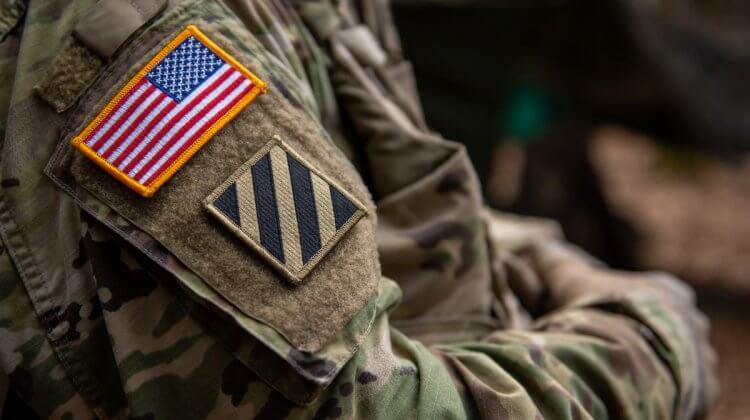
The online chat-rooms that attract self-identified military personnel, as well as others who leave posts on these sites, are the only real source of information about how enlisted soldiers think about anabolic steroids. Much of my confidence in the more substantial postings is based on what I know about American police officers’ use of steroids and their motives for using them. A police department is a paramilitary culture that “employs a culture and protocols that closely approximate those of the armed forces.”i Police and military organizations recruit from the same demographic. Many police departments actively recruit military veterans into their ranks, and many members of these “action-oriented” male subcultures share an interest in anabolic steroids. We do know that much of this attraction to steroids in these groups is based on the perceived “cosmetic” benefits of having large and well-defined muscles. What we do not know is how many cops and soldiers believe that bulking up is necessary to improve their chances of survival on the streets or on the battlefield.
Attempting to estimate steroid use among soldiers means weighing a great deal of hearsay along with a smaller number of credible reports. In a 2010 New York Times blog post that attracted comments that are well worth reading, the former Army officer Tim Hsia wrote that “the use of steroids by soldiers when deployed is rumor.”ii This observation is contradicted by journalistic coverage and other accounts such as this comment from an 2005 online military forum: “You will find steroid use on virtually all military bases. Go to Ft. Bragg’s gym and it will be really easy to spot the juicers, and yes some of them are SF [Special Forces].”iii A 2007 posting states [spelling corrected]: “They still do PT [physical training] and all that. Roids just give them a boost. It seems not to be spoken of too often, it seems to be an underground thing but a good number still do it. Overseas, steroids are sold like candy. This doesn’t pertain to just SEALS. It goes for most of the military. When you see a guy out in Iraq or Afghanistan gain like 20-30 pounds of muscle mass during his tour you would understand. I was also told by an [Army] Ranger friend of mine who is part of the 75th Ranger battalion out in Savannah, Georgia, that the higher ups encourage the use of legal steroids.”iv This is an unconfirmed report. What a former NATO SF soldier told me about the steroid use he saw in Afghanistan is not.
Three years later, an Iraq war veteran who served with Tim Hsia wrote in 2010: “Steroids and other pharmaceutical drugs can be easily acquired from the local national security forces that they [American troops] share these outposts with. Several of my subordinate leaders were using steroids (I discovered this after the fact), and quickly developed significant disciplinary problems. The NCOs were over aggressive, irritable, and dealt poorly with stress. Not exactly a recipe for success in the COIN [counterinsurgency] fight.”v
In summary, online comments from self-identified military personnel depict a military drug culture that is as complex and incoherent as that of the larger society from which soldiers come. The enormous $30 billion dietary supplements market has reproduced itself on military bases, and many soldiers rely on these products.vi For example, a PA [physician’s assistant] Medical Officer in Afghanistan called supplement use in 2010 “a huge issue on our base.” “At best,” he writes, “they are harmless and only waste soldiers’ money, at worst they can cause kidney and liver failure.”vii Steroid use inside and outside the military is widely reported but impossible to quantify. Super-caffeinated drinks are everywhere now. According to its manufacturer, which has tied its brand to support-the-troops messages, “Rip It® Energy Fuel has been tested on the battlefield and is a favorite of our Troops.”viii On and off military bases, anabolic steroids play the role of the heavyweight performance enhancer that coexists with less potent (but legal) PED’s.
Read the next installment in the Steroids in the U.S. Military Series: The Special Forces
Endnotes:
- “Military Experience” (Philadelphia Police Department).[http://www.phillypolice.com/careers/military-experience]
- Tim Hsia, “The Performance-Enhanced Military” (May 7, 2010).[http://atwar.blogs.nytimes.com/2010/05/07/the-performance-enhanced-military/?_php=true&_type=blogs&_r=0]
- [http://www.militaryphotos.net/forums/showthread.php?36460-Steroids-in-the-military/page2]
- “A question of Navy Seals nutrition” (March-April 2007).[http://www.militaryphotos.net/forums/archive/index.php/t-108326.html] The 1st Battalion, 75th Ranger Regiment is based at Hunter Army Airfield in the state of Georgia.
- Tim Hsia, “The Performance-Enhanced Military” (May 7, 2010).[http://atwar.blogs.nytimes.com/2010/05/07/the-performance-enhanced-military/?_php=true&_type=blogs&_r=0]
- “Nutritional Supplements Flexing Muscles As Growth Industry” (April 4, 2013).[http://www.forbes.com/sites/davidlariviere/2013/04/18/nutritional-supplements-flexing-their-muscles-as-growth-industry/]
- Tim Hsia, “The Performance-Enhanced Military” (May 7, 2010).[http://atwar.blogs.nytimes.com/2010/05/07/the-performance-enhanced-military/?_php=true&_type=blogs&_r=0]
- [http://www.ripitenergy.com/site/General/military-support.html]
About the author
John Hoberman is the leading historian of anabolic steroid use and doping in sport. He is a professor at the University of Texas at Austin and the author of many books and articles on doping and sports. One of his most recent books, “Testosterone Dreams: Rejuvenation, Aphrodisia, Doping”, explored the history and commercial marketing of the hormone testosterone for the purposes of lifestyle and performance enhancement.